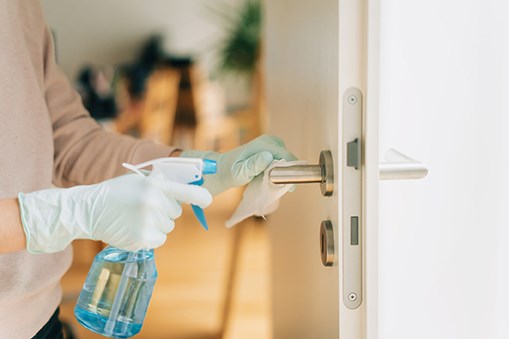They aren't the first people we think of when we cheer at 7 p.m., but cleaners in �鶹�����should perhaps be on the list when we think of frontline workers
The Chief caught up with four locals responsible for cleaning our homes, businesses, schools, and municipal facilities to see how they were coping during the pandemic.
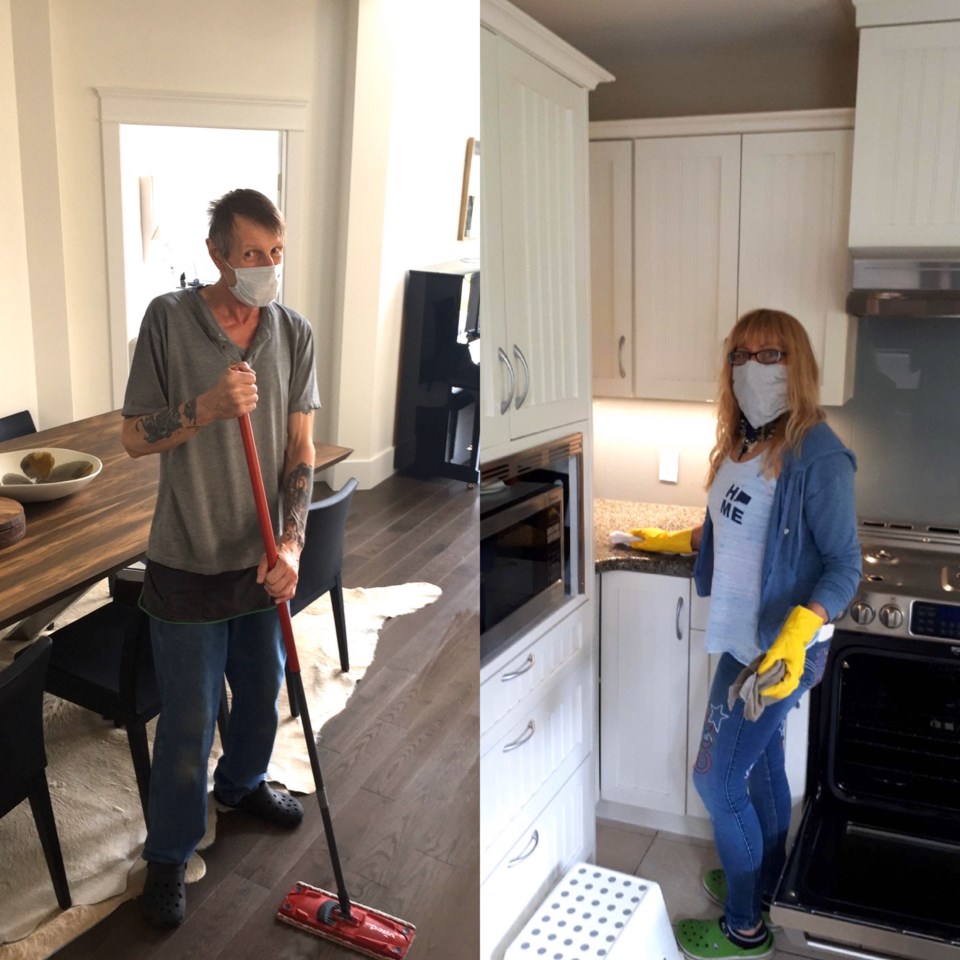
Residential and commercial cleaners
Annie Novoa, owner of said as soon as she heard about COVID-19, she stocked the company cars with hand sanitizer and had face masks available.
Her workers are always careful not to take germs from one house they clean to the next, so not a lot had to change in their protocols, she said, except the company prides itself on using eco-friendly products, and suddenly some clients wanted chemicals guaranteed to kill the virus, so the company obliges.
In terms of workflow, during the first week of COVID-19 restrictions by the province, some commercial clients asked Novoa to double up on cleaning visits, and so she thought the company wouldn't take too much of a hit to its bottom line through the pandemic. She went out and bought a lot of cleaning supplies to be ready for the surge in cleaning jobs to come.
But a week later, as the news of the pandemic became grimmer, residential clients cancelled cleanings for fear of having anyone in their homes, and many businesses shut their doors.
"Within the second week, we lost probably half our clients," Novoa said, adding that vacation rental clients also cancelled, as travel was limited.
Currently, the company is down about 80% of its clients.
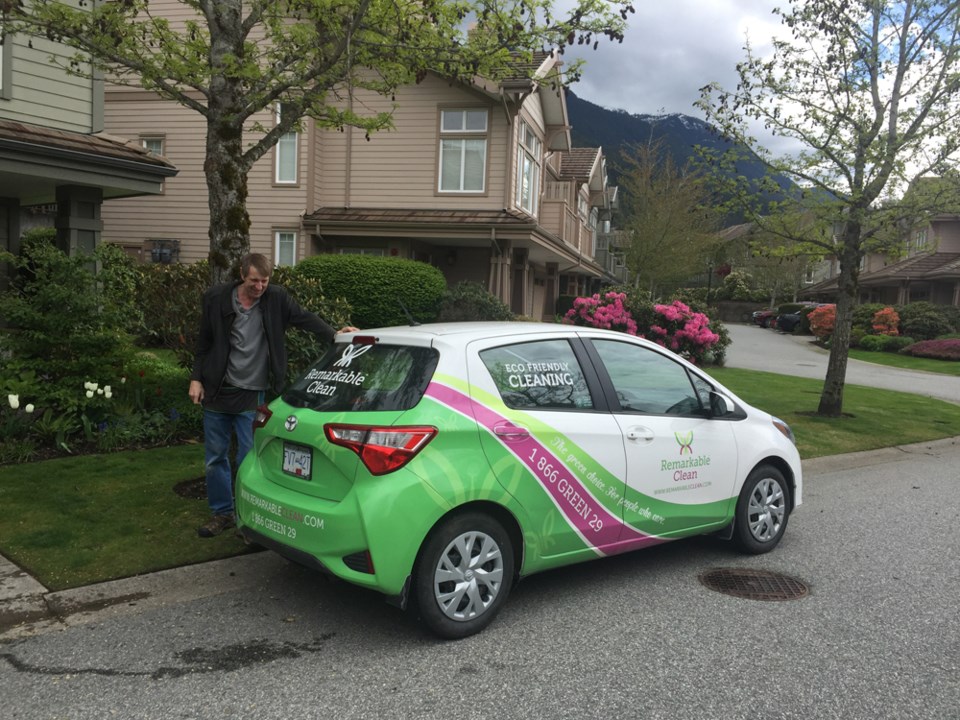
While they used to have six full-time employees, they now have two staff working part-time.
For the clients they do still have, Remarkable Clean requires the residents not be in the same room at the same time as the cleaners, which the company calls eco-hygiene technicians.
Everything that is used to clean, is used per property and not transported from house to house, she said.
"We are here, we are happy to help them," Novoa said, adding that with people home more, houses are getting dirtier than normal and if people are working from home, a good clean could help all around.
"We are taking as many precautions as we possibly can and we understand that having a clean home is part of your sanity."
For people cleaning their own homes, Novoa says to remember handrails, doorknobs, window locks, buttons on things like the microwaves, and light switches.
"Just as much as you are washing your hands, you have to think about where your hands are touching the most in your house," she said.
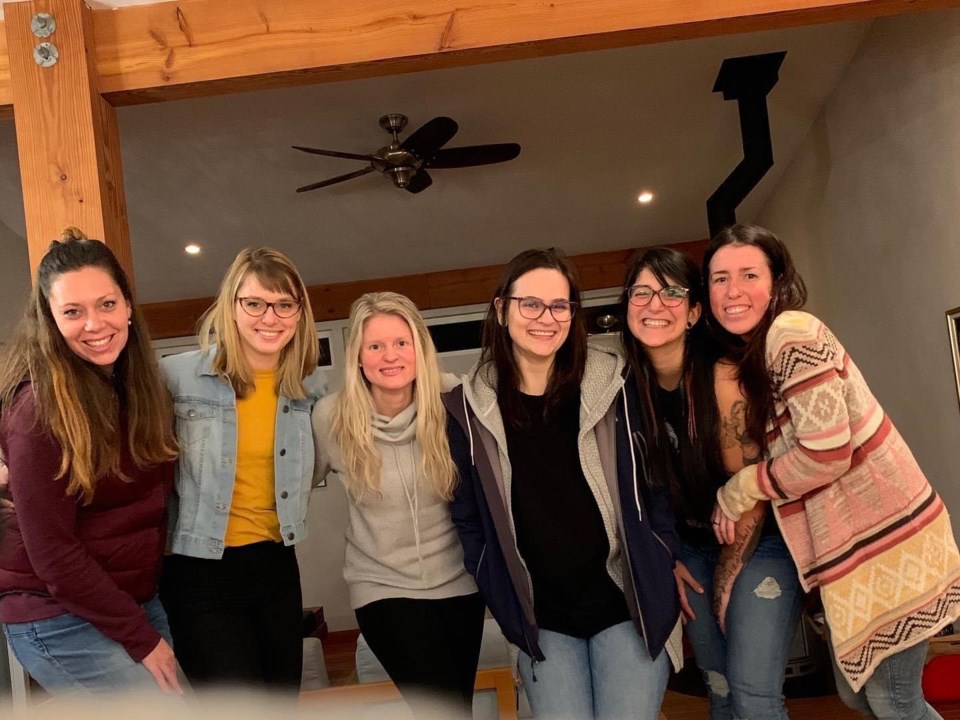
Brooke Turner, owner of the said the question isn't how the pandemic changed her business, but how it hasn't.
"The reality of it is, nobody wants anybody in their house," she said, echoing Novoa.
A lot of the businesses the company serviced are also closed for the time being.
Before the pandemic, the company cleaned about 80 homes and businesses. They currently clean 11 places.
Normally, the company boasts six staff, and Turner and her husband took shifts too, but currently, the company has one person working part-time, total.
"We are kind of at a standstill right now," Turner said.
For the one employee who is working, she is outfitted with masks and gloves.
The company was already well-stocked with supplies, prior to the virus.
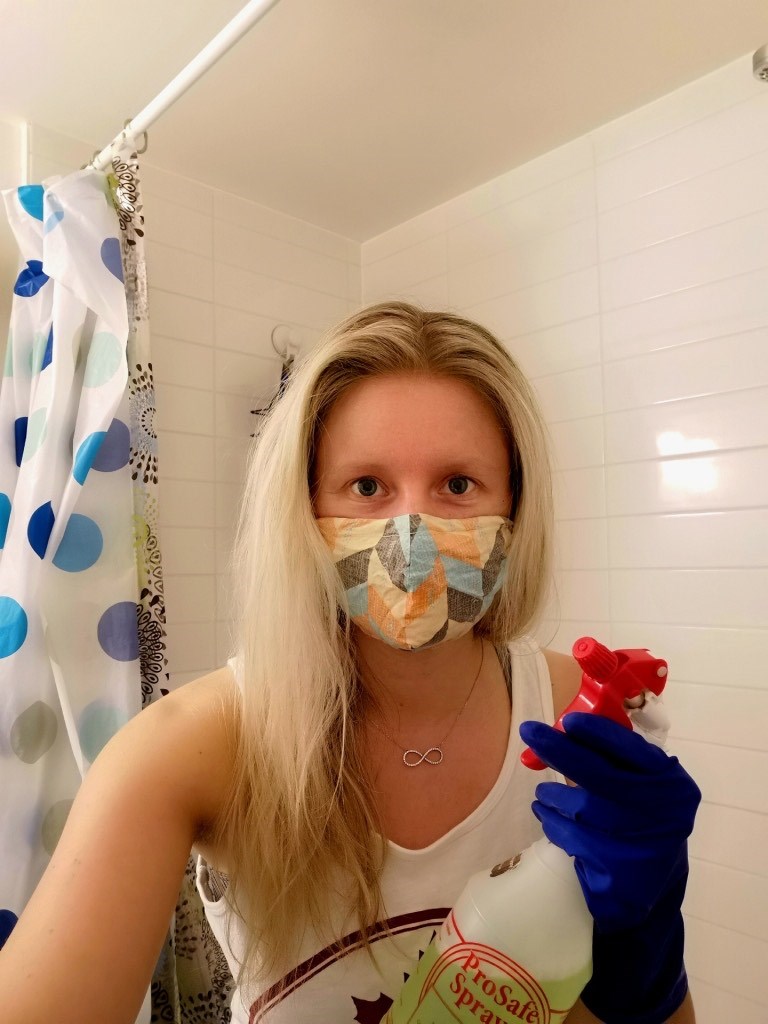
"That is something that I think cleaning companies were probably pretty fortunate with, because we already do take... precautions for germs,"' she said, adding she also donated masks to some nurses at the hospital.
Staff use clients' equipment so tools were never taken in and out of homes, she said.
Like Novoa, Turner said her company too is getting more requests to not use eco-friendlier cleaning solution options, but instead clients want the harsher chemicals that they trust to kill the virus.
[She noted there are still eco-friendly ways to clean. She and her husband make eco-friendly products — cleaning paste and toilet fizzies, for example — and previously sold them at farmers' markets.]
"Everyone is worried and they want to make sure... that is something we have had to adjust as well," Turner said, adding cleaning during a pandemic is emotionally draining with the constant thoughts about where the virus may be. Her husband has asthma, so they worry on a personal level too.
Turner said she is aware residential and small business cleaning is a financial luxury and she wonders if people are going to be able to afford it post-pandemic.
"It is kind of nerve-wracking, I guess, for us," she said.

School district
Don Machalek, the custodial supervisor for the Sea to Sky school district, has over 30 years in custodial work in the Sea to Sky.
He has lived through some other crises that impacted his job cleaning schools such as SARS, and floods in Pemberton that meant people had to be holed up at the high school.
"It was one of the designated emergency places," he said. "We were doing a different type of cleaning there. We were cleaning up after adults, rather than students."
But with the pandemic, the workload on the custodians in the district has gone way up, Machalek said.
Though most students are working from home, teachers and some children — of essential workers, for example — are in the schools.
"Usually, when a custodian goes into a school, they aren't disinfecting from top to bottom," he said, adding that on some less high-traffic surfaces before COVID, staff would use a multi-purpose cleaner. "Now it is more or less a deep clean in every area," he said.
Also, pre-COVID, typically, areas would be cleaned once a shift, but currently, the bathrooms and other high traffic areas in the schools are being cleaned on the hour.
"You are doing it eight times a shift, instead of once," he said.
There are daytime and afternoon custodians currently working, whereas previously, custodians started at 2:30 p.m. and primarily cleaned when kids were out of class.
For protection, custodians in the schools are wearing gloves, and if they want to wear them, masks.
People who come into the schools also sign in and so the custodians know which areas have been trafficked and so are alerted to where any potential virus exposure could be.
Machalek said he is proud that the school district has opened up the facilities for other uses while they are less utilized.
Essential service daycares have been operating in some schools as are immunization centres for routine vaccinations, he said.
The gym at Howe Sound Secondary was used as a �鶹�����Helping Hands shelter for people without a permanent home.
Those folks moved into the temporary housing on the Mamquam Blind Channel this past weekend, but while the clients were there, it meant more cleaning for the custodians.
"The custodians at Howe Sound Secondary, I just take my hats off to them. Those guys have been taking on a huge workload," he said.
On a personal level, Machalek said when he walks in the door of his house at the end of the day, he puts everything he was wearing in the laundry room and washes his hands right away, before walking around the house.
His other advice for �鶹�����residents is when arriving home with groceries, have a designated spot on the floor to put them.
"You don't know where those bags have been," he said.
He also recommends going to the which lists hundreds of cleaning products that can kill the virus.
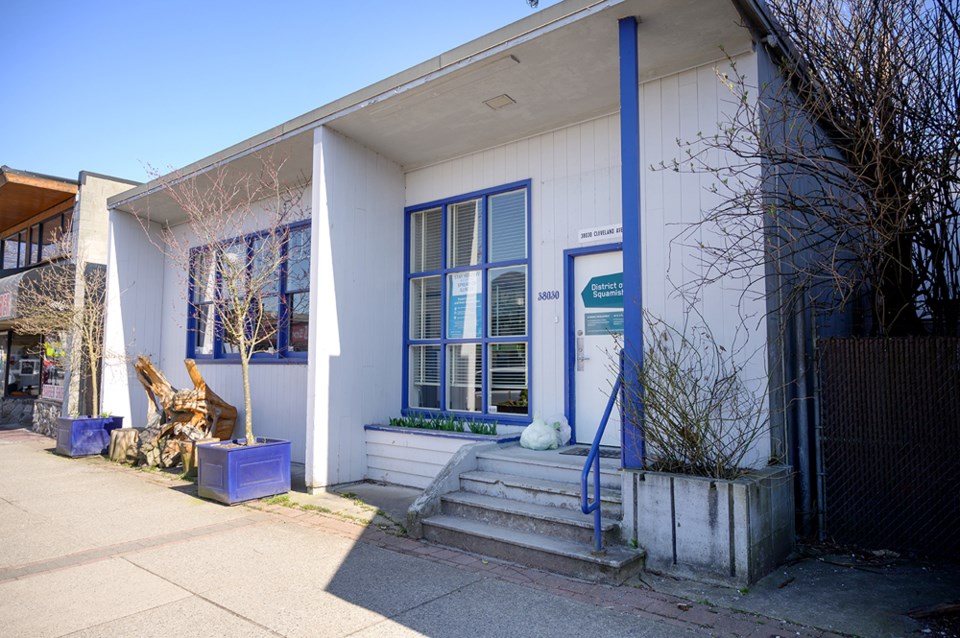
Municipal facilities
Camilla Say, facilities manager responsible for the janitorial in District buildings, told The Chief cleaning protocols for the District changed slightly in mid-March.
According to Say, before the pandemic and since, cleaning protocols have continued to align with WorkSafeBC.
"For example, all buildings where any staff are working are cleaned on a daily basis. Much of the custodians' role is the same in terms of cleaning the floors, emptying waste bins and cleaning washrooms," she said.
Starting mid-March, the regular clean now includes a sanitizing wipe-down of all surfaces that are touched.
"Our custodians clean when there are zero to just a few people in the building, for example, early in the morning or late in the evening, to minimize the risk of infection," she added.
The biggest focus for muni cleaners is the sanitization of all hard surfaces such as washroom door handles, toilet handles and washroom dispensers, entrance door handles, countertops, kitchen equipment such as microwave doors, fridge doors and the like, she said.
"At Brennan Park pool, the showers are available for use by the general public six days per week and they are deep cleaned thoroughly following each session to ensure all surfaces are sanitized," she said.
Additional disinfectant spray bottles and paper towels are stationed throughout the facilities.
With the gradual re-opening of facilities, Say anticipates extra diligence in the cleaning of all common surfaces, to reduce the spread of any germs.
"We will be following all directions coming from the BC Ministry of Health and other guiding bodies such as WorkSafe, , and other governing bodies with regards to cleaning protocols," she said.
The company in charge of staffing �鶹�����Hospital with janitors didn't return The Chief's request for comment.
How has your business been impacted by COVID-19? Let us know by writing to [email protected].
